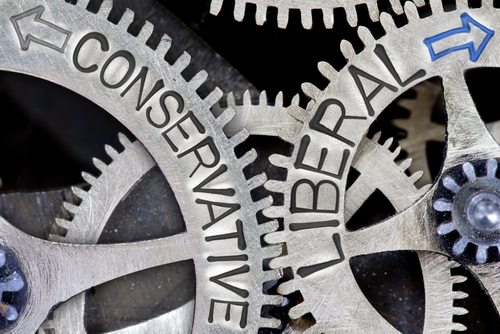A Tale of Two Evils and the Need for more Libraries
By: Steven Williams
I would argue that liberal elitism is the sense of superiority stemming from a perceived understanding of progressivism in society and that reactionary conservatism is the misdirected expression of angst as a result of societal progressivism. Both mindsets are born from changes in society and are equally divisive due to their expressions of negativity and ignorance.
Liberal elitism is to take pride in knowing without the willingness to explain or sympathize. For example, it is to know that human rights issues are important but to look down on those that don’t understand why human rights issues are important. Liberal elitism is to be knowledgeable for the sake of being better than others as opposed to personal growth and understanding.
Liberal elitism has seeped into the Democratic base. It has surely always been a factor in the progressive party of the time but today with modern forms of mass communication, it has become a reason for concern. The internet gives a voice to all, and while this is a good thing, it has unfortunately led to the rise of the “I know so I’m better”. Let’s call this person, the IKSIB. The IKSIB is the root of liberal elitism. They take pride in knowing more than the next person and do not wish to educate or teach. The IKSIB can be a professional, a professor, a politician, a student, even an anarchist. They can be anything but the one thing they are not, is an educator. They don’t teach, they just want to let the world know how much more they know which, isn’t much.
An IKSIB is a liberal elitist because they understand society is progressing but have no desire to help others understand that progression or are at the very least, are dismissive of others’ ignorance. Thus they are ultimately counterproductive to that progression because their smugness turns people away from significant issues.
For conservatives, reactionary conservatism is of a similar detriment due to its kneejerk, misguided anger. There is only one constant in life, and that is change. Change is the only thing that is inevitable.
Reactionary conservatism chooses an enemy, usually based on the actions of just a few and uses them as scapegoats for what the reactionary conservative might see as ailments of the world. Many of these ailments, however, others might just see as progression. For example, the acceptance of the transgender community.
Reactionary conservatism can be as equally divisive as liberal elitism but it can take it one step further. It can and often times leads to extremism. Take some of the actions reported on at Trump rallies for example. Reactionary conservatism was the force behind the Nazis who used the Jewish people as their scapegoats. It is a mindset that should be of real concern due to its role in one of the most devastating genocides in human history.
In the Information Age, reactionary conservatives, like liberal elitists have a voice that empowers likeminded individuals. The internet fuels their misguided angsts. When this happens, people get hurt and society grows further apart.
In short, liberal elitists turn people off and reactionary conservatives turn people away. So what should society do to prevent or at least limit people from falling into either of these two camps? Well the solution can be found in a proper education, but that is a complicated answer because that education will differ depending on the person teaching and the material being taught. To complicate the matter even further, the life experiences of the student will differ to varying degrees from person to person, so even if the educator is the same and the subject matter is uniform, the people receiving the education will always be different. The only way to address these mindsets is through cultural immersion.
Cultural immersion captures the essence of a proper education by giving people access to a wide variety of different schools of thought and encourages people to consider multiple viewpoints. It is a fluid learning process that accounts for the different types of educators, different subjects and different types of students by not being rigid and rather, adaptive. It gives individuals access to people different from themselves and a broader understanding of the world. It lets people know that despite all of our differences, there are more things that unite us than divide us and that adopting elitist personas based on marginal knowledge of progressive issues or by pushing back on societal change by outwardly rejecting those that look or behave different from you, are foolish actions.
Not everyone can afford a plane ticket to explore foreign countries or even other states but the library is an option for everyone and there you can find books on other cultures, organize meetups with people from different parts of the world and/or chat with individuals from other countries via the internet. The library is the perfect location for entry-level cultural immersion. It is literally an option available to all and should be used by all to start bridging our divides.
Guest Post by Steven Williams, opinions may not reflect that of New Theory or its affiliates







